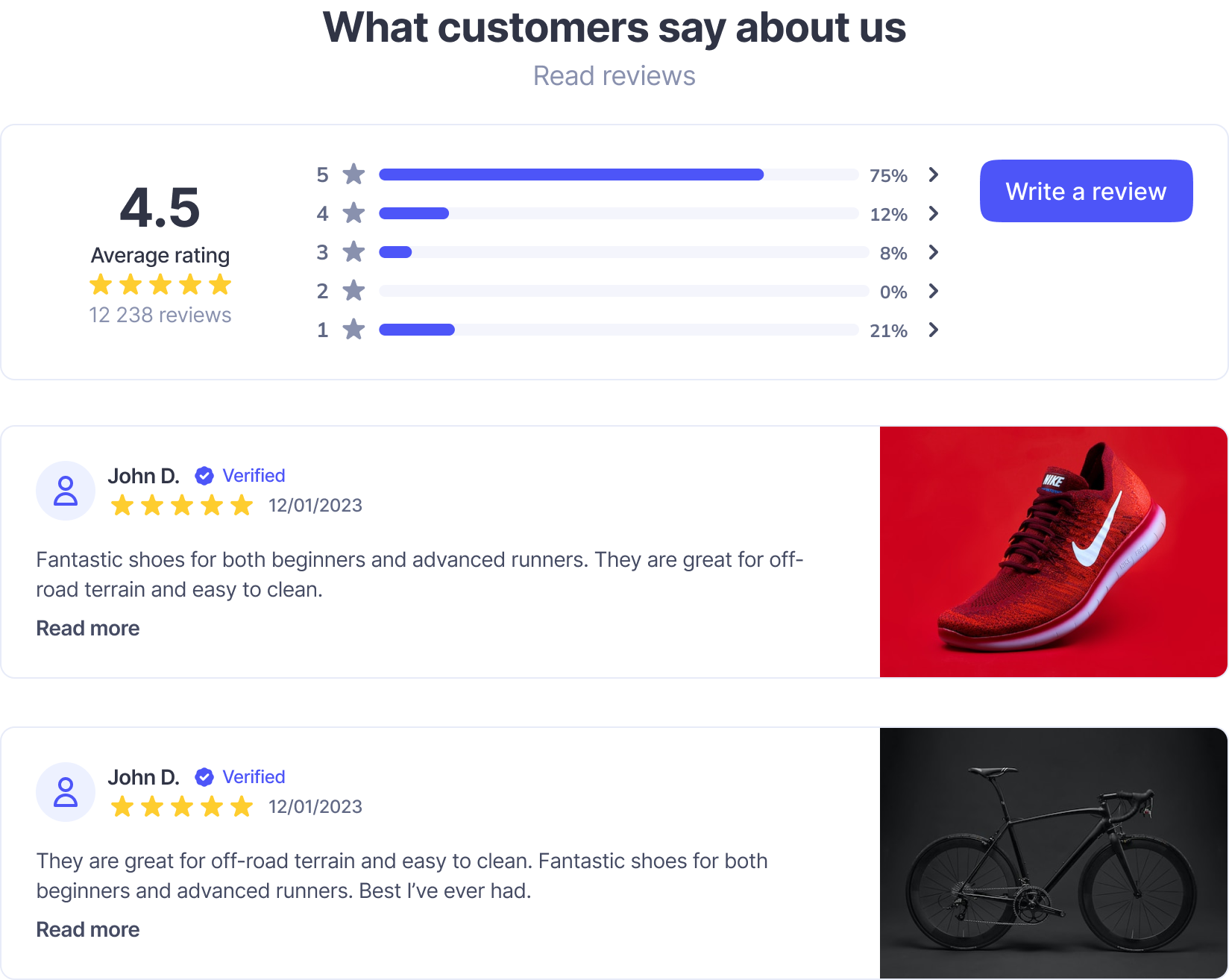

FTC Proposes Ban on Fake Reviews: Leveling the Playing Field for Honest Companies

Table of contents
Introduction
In the digital age, fake reviews have become a growing concern for both consumers and businesses alike. Especially because a lot of customers consider positive or negative reviews while deciding about their purchase. Recognizing the need to address this issue, the Federal Trade Commission (FTC) issued notice of proposed rulemaking, in which the Commission has proposed a new rule that aims to ban fake reviews and testimonials. This move by the FTC seeks to crack down on deceptive advertising practices, which can mislead consumers and harm honest companies. In this article, we will explore the proposed ban on fake consumer reviews, its potential implications, and how it could impact businesses and consumers.
FTC proposes new rule - fake reviews ban
The FTC has proposed a new rule that would ban companies from buying positive or negative reviews. The proposed rule would also prohibit businesses from using or repurposing a consumer review written for one product to advertise another (review hijacking). Furthermore, it would ban managers from writing reviews or testimonials for their own companies or their competitors.
The proposed rule to ban fake consumer reviews and testimonials shows that the FTC is committed to using all available means to attack deceptive advertising practices in the digital age, especially knowing how easy it is for bad actors to write fake reviews using artificial intelligence. Samuel Levine, the Director of the FTC's Bureau of Consumer Protection, affirms the necessity of the ban fake online reviews, stating, "our proposed rule on fake reviews shows that we're using every available means to combat fake reviews and protect consumers."
How to avoid fines and collect more reviews from real customers?
Luckily, there is still an option for gaining more positive reviews without buying or writing reviews or testimonials by someone from your company. Rating Captain offers a software, that allows you to send automated e-mails inviting your customers to leave a review in your Google My Business profile. Furthermore, you can collect reviews about certain products and add them to your website. Widgets with reviews are a great way to show your positive reviews, and encourage potential customers to buy from you with social proof.

FTC would ban companies from buying online reviews or selling fake testimonials
The FTC proposed rule seeks to ban several different deceptive practices involving selling consumer reviews or testimonials. It aims to remove a significant advantage that companies gain through fake reviews (by writing or selling consumer reviews), leveling the playing field for honest businesses. By prohibiting the buying or selling of fake reviews and suppressing negative reviews through intimidation tactics, the proposed rule would trigger civil penalties for violators, ensuring stricter consequences for those involved in deceptive practices. FTC proposed ban makes insider reviews and consumer testimonials, that are fake, will be punished with up to 50 thousands dollars per one fake review.
Consumer trust plays a critical role in the success of businesses today. Knowing which reviews to trust can be challenging when companies use or sell fake reviews online or try to suppress negative reviews. The proposed rule would help level the playing field by ensuring that consumer reviews and testimonials reflect genuine experiences and opinions. This, in turn, would protect consumers from being misled and provide a fair marketplace for businesses to compete based on the quality of their products or services and not by using fake reviews.
Implications of fake online reviews ban for businesses and consumers
The ban on fake reviews proposed by the FTC would have significant implications for businesses and consumers alike. For businesses, it means a shift in their approach to online reputation management. They would need to focus on providing excellent products or services to earn genuine positive reviews, rather than resorting to buying or selling fake reviews. While this may initially pose challenges for some businesses, it ultimately encourages transparency and fosters a more trustworthy environment. Paying for positive reviews will no longer be allowed, and companies will have to collect honest reviews instead of fake or false reviews.
On the consumer side, the proposed rule would prohibit businesses from misrepresenting the reviews on their websites to represent the opinions of unbiased consumers. This would give consumers more confidence in the authenticity of the reviews they rely on when making purchasing decisions. Additionally, the ban would help protect consumers from being misled by fake reviews, enabling them to make informed choices and avoid deceptive marketing tactics.

The role of the FTC and potential enforcement challenges of putting a ban on fake reviews
The FTC proposed ban on fake reviews demonstrates its commitment to ensuring fair practices in the digital marketplace. However, enforcing the ban may present challenges. With the increasing sophistication of fake review techniques, it may be difficult to detect and penalize all violators effectively. The FTC would need to employ advanced methods to identify and deter those who continue to engage in deceptive practices.
Furthermore, the FTC would need to rely on consumer reports and complaints to identify suspicious behavior. Encouraging consumer participation and awareness of the ban's existence would help in this regard. Additionally, educating businesses on the consequences and ethical implications of fake reviews would promote compliance and discourage participation in such practices.
Conclusion
The proposed ban on fake reviews by the FTC seeks to address the growing concern of deceptive advertising in the digital age. By prohibiting the buying or selling of fake reviews, the proposed rule aims to level the playing field for honest companies and protect consumers from misleading information. While enforcement may pose challenges, the FTC's commitment to utilizing available means to combat fake reviews demonstrates its dedication to a fair and transparent marketplace. As this proposed rule evolves, businesses and consumers alike should stay informed on its potential implications and contribute to the overall goal of fostering trustworthy online environments.
Please rate this article
Try our new
Local SEO tool
Manage and track visibility of your
Google Business Profiles





